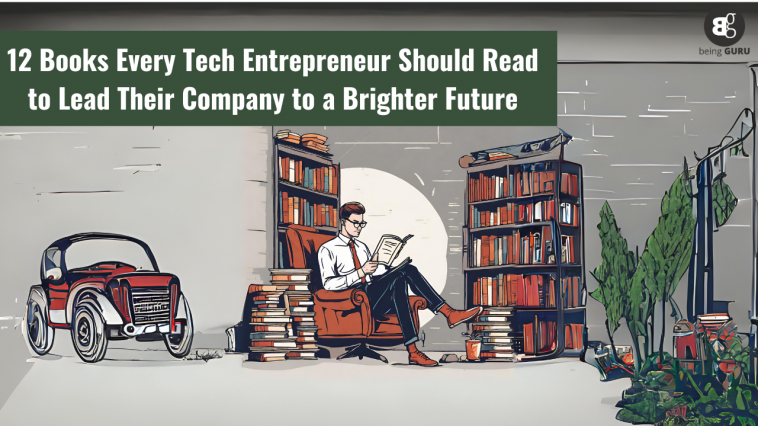In the current era of easily accessible knowledge, it is essential to take lessons from mistakes, find inspiration in the wisdom of philosophers, and stay abreast of scientific advancements without necessarily being confined to labs, libraries, or universities. Neglecting to capitalize on this opportunity would be a missed chance for personal and professional growth.
The diverse world of literature, encompassing more than just business-related works, has the potential to substantially improve an entrepreneur’s management skills.
Read more: 10 Best Business Ideas for Teenagers and Young Entrepreneurs
Here’s a must-read book list for tech startup founders.
1. Behave: The Biology of Humans at Our Best and Worst by Robert Sapolsky
Gain a deeper understanding of your primary tool—the brain—by delving into the principles of brain function. Stanford University professor Robert Sapolsky employs a unique blend of biology and political history to elucidate the motives behind human behaviour. This comprehensive approach provides entrepreneurs with valuable insights into the intricacies of the subject.
2. Thinking, Fast and Slow by Daniel Kahneman
Establish a solid foundation for your decision-making system with this book. It serves as a guide to cultivate essential critical thinking skills crucial in the business realm. Recognizing the existence of cognitive errors is distinct from being able to identify them within yourself. To initiate the process of self-awareness and discernment, I recommend delving into the insights provided by this book.
3. When Nietzsche Wept: A Novel Of Obsession by Irvin Yalom
In his teachings, Irvin Yalom emphasizes that individuals decide the extent of truth they can handle. This book serves as the key to unravelling the intricate life questions encountered by entrepreneurs.
4. Guards! Guards! by Terry Pratchett
Pratchett offers his perspective on the meaning of life, the individual’s journey, and their role in the intricate social fabric, infused with authentic English humour and irony. This book, blending an unconventional mix of sensuality, realism, and fantasy, provides a fresh outlook on the world. Notice how seamlessly the text aligns with modernity, devoid of temporal constraints, inspiring the possibility of creating a company that remains relevant for years.
5. War and Peace by Leo Tolstoy
Leo Tolstoy’s “War and Peace” transcends being a classic; it serves as an exemplary textbook on strategic management. This work imparts the wisdom of thinking globally and underscores a crucial managerial principle: for an idea to materialize, decisions must evolve through birth, maturation, and formation. Projects that contradict the logic of life are destined to falter strategically. Consider the contrasting fates of Andrey Bolkonsky and Pierre Bezukhov as a poignant illustration of this concept.
6. Rise and Kill First:
Ronen Bergman explored the intricacies of Mossad, a highly complex organization, that may offer more reflective insights than analyzing successful companies. This foundational work unfolds the narrative of the Middle East conflict, delving into the tactics employed by both sides, narrating personal stories, and examining the role of individuals in shaping history. Notably, the author maintains impartiality in describing events, avoiding bias toward any particular side.
7. The Ark 47 Librae by Boris Stern
8. Charlie Chaplin: A Complete Biography
While autobiographies may not be my preferred literary genre, the life story of Charlie Chaplin is truly captivating and has the power to inspire any entrepreneur. Chaplin recounts his journey of surmounting challenges and attaining success.
The initial circumstances he faced would have tested almost anyone — dealing with his mother’s insanity, experiencing childhood in a workhouse, and performing on stage as a child. Yet, despite these adversities, he achieved remarkable success, a result of immense effort and years of hard work.
9. “Hooked: How to Build Habit-Forming Products” by Nir Eyal
“Hooked: How to Build Habit-Forming Products” by Nir Eyal is a concise and insightful guide to understanding the psychology behind creating products that form lasting habits. Eyal introduces the “Hook Model,” a four-step process derived from behavioral psychology, providing valuable insights for product designers and entrepreneurs. This book is an essential read for those interested in the art and science of building products that seamlessly integrate into users’ lives, fostering engagement and long-term usage.




